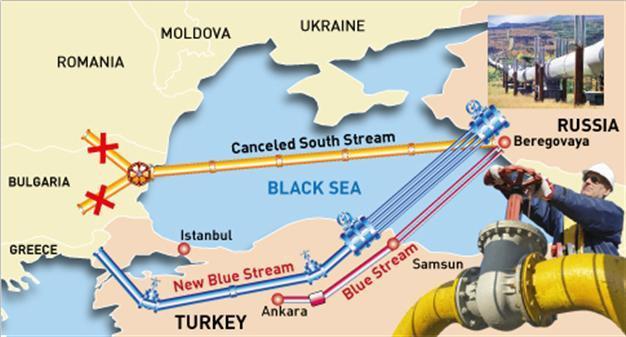New moves alter energy routes around Turkey
Merve Erdil - ISTANBUL
 An unorthodox step by Russia, Turkey’s largest natural gas provider, to cancel a giant gas project has come on the heels of an official deal in its southern neighbor, Iraq, easing an internal conflict over oil exports, reshuffling the cards in the region’s energy distribution paradigm.
An unorthodox step by Russia, Turkey’s largest natural gas provider, to cancel a giant gas project has come on the heels of an official deal in its southern neighbor, Iraq, easing an internal conflict over oil exports, reshuffling the cards in the region’s energy distribution paradigm.Russian leader Vladimir Putin picked Turkey to announce the termination of the giant South Stream project that would send gas to energy-hungry southern Europe, bypassing Ukraine. Turkish officials have welcomed Putin’s offer to replace the $40 billion South Stream with a new pipeline to northern Turkey, as it was accompanied by a hot 6 percent cut in gas prices. Turkey currently buys 60 percent of its gas from Russia.
The central Iraqi government in Baghdad, meanwhile, announced on Dec. 2 that a final formal deal was reached with the Kurdistan Regional Government (KRG) that could include lucrative Kurdish oil to Turkey’s budget of probable exports or transfer revenues.
The two game-changer moves come at a time when Turkey has looked at transferring gas to Europe with an up to $7 billion pipeline project with Azerbaijan, dubbed TANAP, scheduled for 2018.
The Russian project remains in its infancy, while the sustainability of the Iraqi deal also hangs by a thread, but if both come to fruition, the dual input could change Turkey’s fuel-dependent positioning, if not the energy map of the region.
















